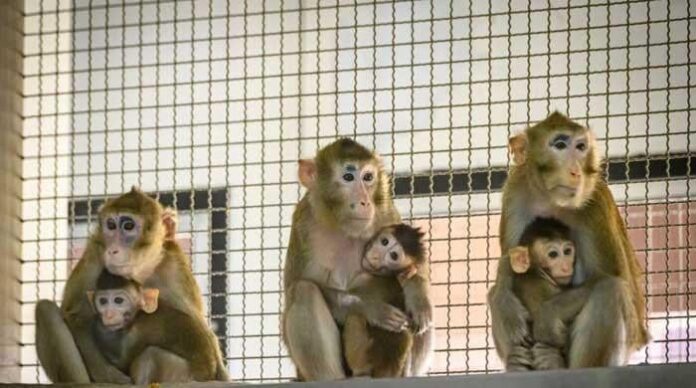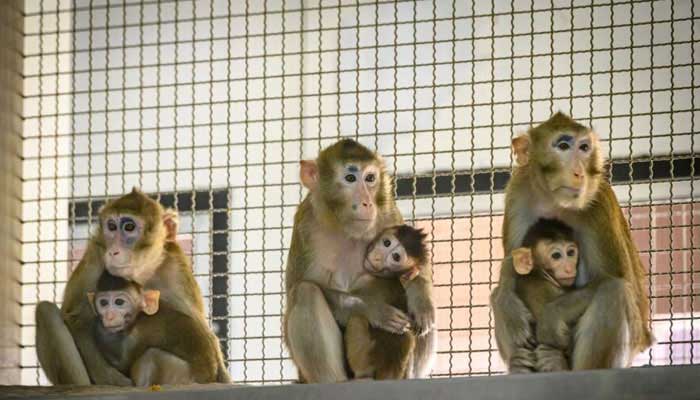ISLAMABAD: Following the deaths of three rhesus monkeys in Islamabad’s Margalla Hills National Park, the wildlife experts have blamed “human feeding” for the rising incidents and called for heightened public awareness regarding human interactions with animals.
The development came days after a rhesus monkey was fatally electrocuted in the national park while climbing power lines in search of food. This marks the third such fatality in recent months, underscoring the growing dangers of human feeding habits.
Giving details about the incident, wildlife rescuer Sana Raja noted that the monkey climbed the electrical infrastructure in search of food scraps left by park visitors.
Speaking to the state news agency, she believed human feeding has conditioned the animals to associate humans with food, pushing them into unsafe areas like roads or power lines.
“Human feeding disrupts the instincts of monkeys,” she said, adding this not only leads to unnatural behaviours but also draws them into hazardous environments, such as roads or areas with electrical infrastructure.
She added that the overpopulation of rhesus monkeys in the park is a direct consequence of human feeding habits. “Their numbers have grown manifold over the years, causing increased competition for resources, injuries, and aggression toward humans.”
“Many monkeys suffer severe health issues from eating trash, including fungal infections in their digestive systems,” Sana added.
Meanwhile, Sakhwat Ali, an environmental scientist, warned that feeding wildlife disrupts the ecosystems.
“Monkeys and other animals may abandon their natural diet, leading to malnutrition and aggression within populations,” he said, adding that this not only affects their health but also creates an imbalance in the ecosystem, putting undue pressure on human-animal coexistence.
Many park visitors expressed regret over the monkey deaths, admitting they were unaware of the consequences of their actions.
“I thought I was helping by sharing my snacks with them,” one visitor said, adding: “Now I see it is more harmful than I imagined.”
Umar Bilal, spokesperson for the Islamabad Wildlife Management Board (IWMB), said that the deaths of monkeys are “preventable”.
He appealed to the visitors to help them protect the wildlife by following the guidelines. The IWMB, he said, has ramped up efforts to curb harmful practices.
As the Margalla Hills National Park grapples with the challenges of preserving its natural habitat, the responsibility lies not just with authorities but with every visitor. By respecting nature and its inhabitants, the delicate balance of the ecosystem can be protected for generations to come.








